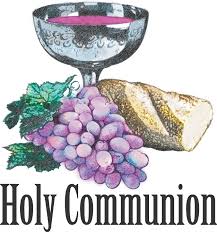I Thessalonians 5:19 – Do not quench the Spirit.
The next reminder Paul gives the Thessalonians is not to quench the Spirit. This metaphor is taken from the power and nature of Holy Spirit. He is likened to a fire, which illuminates our way, purifies/refines our lives and warms/enlivens our service for Christ. During the first Pentecost, he appeared as tongues of fire upon each believer: 
Acts 2:2-4 – And suddenly there came from heaven a sound like a mighty rushing wind, and it filled the entire house where they were sitting. And divided tongues as of fire appeared to them and rested on each one of them. And they were all filled with the Holy Spirit and began to speak in other tongues as the Spirit gave them utterance.
The fire of Holy Spirit was kindled on the day of Pentecost. However, just as an earthly fire can be put out with water, there are things in our lives that can put out or quench the work of Holy Spirit.
Let’s begin our study by attempting to define what Paul meant by the work of the Spirit. There are two main theories.
One theory says that Paul is referring to all influences/workings of Holy Spirit. This includes the illumination of our understanding, the conviction of wrong, revelations of the mind/will of God, the growth of spiritual fruit, personal sanctification and the gifts of the Spirit. Because Holy Spirit also kindles in us a supernatural zeal for God, as well as love for God and man, these influences would be included too.
There is certainly nothing wrong with this theory. However, given the context of the chapter (addressing issues specific to the Thessalonian church), a narrower definition of the Spirit’s work may be better. This is what we find in the second theory.
The second theory says that in this context, the work of Holy Spirit is limited to the gifts of the Spirit. The gifts are word of wisdom, word of knowledge, gift of faith, gifts of healing, working of miracles, gift of prophesy, discernment of spirits, speaking in tongues and interpretation of tongues (I Corinthians 12:1-11). This is the view we will adopt for the rest of today’s study.
Those who hold this view point out that in the Thessalonian church there were members who believed that the return of Christ was imminent and as a result, they got ‘carried away’ in the operation of their spiritual gifts. This resulted in constant interruptions or disturbances during the church services. Because of the chaotic atmosphere this created, church leaders (and probably other members as well) were attempting to discourage or stifle the operation of the gifts among the congregation.
While the leaders certainly needed to maintain order, this was the wrong thing to do. They should have trained their members on how to properly operate in the gifts, rather than trying to discourage their use. (In their defense, they probably didn’t know how and they had no resources to turn to.)
This was apparently an issue in more than one of the early churches, as Paul addressed this topic at length in his letter to the Corinthians (I Corinthians 14:26-40). In that epistle he gives specific instructions on how the gifts should function in the church assembly. He concludes that all things in the church must be done in order (without confusion or chaos).
Nevertheless, the point is this: It is possible to hinder/impede/quench the work of Holy Spirit. How is that done? What does it look like?
As it turns out, there is more than one way.
Just as a fire will be extinguished without fuel, we can extinguish the Spirit’s work in our own lives by lack of prayer, by failing to fill ourselves with the word, by being absent from church services and/or other places where believers gather, or by being disorderly in the operation of our gifts. 
Fires can also be extinguished by inundating them with water. We can extinguish the work of the Spirit in our own lives by submerging ourselves in sin, pride, ambition, anger, malice, unforgiveness, revenge, or love of the world.
Worse yet, we can discourage others from practicing their gifts as well. We can effectively do this by criticizing them or by scorning their message. In the case of the early church, they also did this by interrupting each other, so no one could be heard. This is another form of quenching the work of the Spirit.
The bottom line is that spiritual gifts MUST be allowed to operate within the church. These gifts are given from God, through Holy Spirit for the edification and growth of the church.
The leadership of the church is responsible for maintaining order while the gifts are being used. They should train congregants in their operation, as needed.
Incidentally, all nine of the gifts should be in operation in the church. By missing one, the church is missing a vital resource. If you see that one or more are absent, pray and ask Holy Spirit to fill that gap.
I Thessalonians 5:20 – Do not despise prophecies,
What do you think of when you hear the word ‘prophesy’?
The most common definition of this word is ‘to utter predictions; to make a declaration of events to come’. This is the way the word is used in passages such as Matthew 15:7 or I Kings 22:8.
But the word ‘prophesy’ can also be defined as ‘to give instruction in religious matters; to interpret or explain scriptures or religious subjects; to preach; to exhort; to expound’.
Here is verse 20, prophesy means the interpretation and application of the scriptures, which we commonly call preaching:
1 Corinthians 14:3 – On the other hand, the one who prophesies speaks to people for their upbuilding and encouragement and consolation.
It is possible that in Thessalonica, as was the case in Corinth, there were believers who regarded certain gifts of the Spirit (such as tongues or miracles) to be more important than prophesy/preaching. In their estimation, preaching was a ‘lesser’ gift which they undervalued and/or disrespected.
It is equally possible that the Thessalonian church had been ‘burned’ by some bad preachers. In every generation there are people who abuse the gift of prophesy by preaching worthless/vain messages or by deceiving people with spiritual errors and false doctrines. If this was the case in Thessalonica, it’s no wonder the believers disliked of preaching.
But Paul sets the record straight on the true preaching of the gospel – we are to place a very high value upon it; it is the method God has chosen for the conversion of sinners as well as the instruction and edification of his church. Prophesying/preaching is a very valuable spiritual gift; it should be earnestly desired and sought after (I Corinthians 14:1, 14:5, 14:39).
This command (do not despise prophesy/preaching) is tied to the one before it (do not quench the Spirit), because the main way in which the Spirit illuminates our hearts/minds is through the doctrines of the bible. Therefore, those who think they have no need for continual instruction (regular preaching as well as teaching) are quenching the work of the Spirit in their own lives. Don’t be that person!
When some of the believers at Thessalonica despised the preaching of the word, it had a ripple effect on the entire congregation. It created a rift between them and their fellow parishioners. It also discouraged the leadership, which in turn quenched the work of the Spirit in their lives.
The bottom line is that every Christian should hold the gift of preaching the gospel in the highest esteem. Great care should be taken to listen/understand to the preaching of the word, because it benefits our spiritual lives.
I Thessalonians 5:21 - …but test everything; hold fast what is good.
Although the church was not to despise the preaching of the word, neither were they to blindly accept everything they were told. The same holds true for us.
It would be wonderful if every single person who claimed to be preaching the gospel were really doing so. But we know that was not the case. Back in the days of Paul, there were many false prophets/preachers/teachers:
II Peter 2:1 – But false prophets also arose among the people, just as there will be false teachers among you, who will secretly bring in destructive heresies, even denying the Master who bought them, bringing upon themselves swift destruction.
This is reason enough for every church in every generation to ‘test’ or closely examine what they are being told. The method of testing is to examine what is being preached or taught to make sure that it lines up with the words of Jesus and with the doctrines outlined by the apostles (Acts 17:11, Galatians 1:8-9).
We can’t help but notice that this directive is given to ALL Christians, not just the church leaders. In this day and age, every Christian should have a copy of the bible, and every Christian should be familiar with what it says. Each one of us should be using our own intelligence and our own knowledge of the word to examine what is being said (Hebrews 5:13-14).
I Corinthians 14:29 – Let two or three prophets speak, and let the others weight what is said.
I John 4:1 – Beloved, do not believe every spirit, but test the spirits to see whether they are from God, for many false prophets have gone out into the world.
Furthermore, the church was to pay attention to the vessel through which the word was given. If a person came to the church claiming to have a word from God, but they were known to be a heretic or known to be living an immoral life, they should not be allowed to speak under any circumstances. Only those known to be living lives in accordance with Christian principles should be given a platform to preach or teach in the church (Titus 1:5-9). 
In addition, Holy Spirit gives the gift of discerning of spirits. The holder of this gift is able to perceive or recognize the source of the teaching or message. If that message is from the devil and not from God, or if the message is arising from a fleshly desire such as pride or ambition, this Christian will recognize it. If your church doesn’t have this gift in operation, you should ask the Lord to give it to someone in your congregation.
Once a sermon/teaching (or other manifestation of the Spirit) was tested and judged to be good, it was to be accepted and put into practice by each individual believer. In this case, ‘good’ is defined as something that is genuine or true. It includes that which is:
- honest/true.
- profitable.
- in line with sound doctrine.
- useful for instruction.
- useful for edification.
- valuable for increasing faith.
Notice that ‘good’ does not necessarily refer to something that is agreeable. We may find that God gives us a word that we personally don’t like and would rather ignore, but that is not an option.
The bottom line is that if the word given is genuinely from God, it must be accepted and added to our lives, even if that entails the crucifixion of our fleshly desires.
We are to steadfastly continue in the gospel and in the practice of good, even in the face of opposition, ridicule, personal loss or persecution. This is the mark of a true Christian (Hebrews 4:14, Revelation 3:3 & 2:13, II Timothy 1:13, etc).
I Thessalonians 5:22 – Abstain from every form of evil.
Not surprisingly, there are differences of opinion on the exact meaning of the apostle.
Some think he is warning against any practice which seems sinful but might not technically be so. In this scenario, Paul is believed to be referring to the realm of Christian liberty.
As you recall, Paul tells us that certain things are permissible for all believers, but at the same time, some believers may feel conviction about exercising that liberty. For them, it would be wrong to do so.
For example, back in Paul’s day animals were sacrificed to idols. Soon afterward, the meat was available for sale. This caused a controversy among Christians – was it a sin to eat that meat, or not?
Paul concludes that it was not a sin to eat it, as long as you gave thanks to God for it.
However, he also says that if a brother or sister believes it to be sinful (hence the appearance of evil), then we should not do it because we do not want our brother or sister to stumble in their faith (see I Corinthians chapter 8).
I Corinthians 8:13 – Therefore, if food makes my brother stumble, I will never eat meat, lest I make my brother stumble.
Romans 14:21 – It is good not to eat meat or drink wine or do anything that causes your brother to stumble.
Another interpretation says that Paul is referring to instances where the Christian still has doubts about a sermon or teaching that they heard, even after searching the scriptures. Those who hold this view believe Paul is telling Christians to avoid any doctrines which they find doubtful, until they receive further confirmation on the matter. Once they receive further clarification, the doctrine can then be either embraced or fully rejected.
A third interpretation says that Paul is referring to any practice that pushes the limits of morality. We might describe this as living on the edge of evil or getting as close to evil as possible without technically participating in it.
For example, if you are married, it isn’t technically a sin to flirt with another person, but if you do you are on the edge of sin/evil. Unbelievers may get the impression that you are okay with engaging in sexual sin and this casts a bad light on the gospel message. 
This theory also states that Christians should avoid any activity that is a known gateway into evil. Drinking alcohol is in this category. Technically, it isn’t a sin to drink. However, after you begin drinking you are prone to doing things you wouldn’t otherwise do. You can lose control of yourself and wind up in sin.
Any or all of these three interpretations may be true. It certainly wouldn’t hurt us to adopt all three of these views into our daily lives!
The bottom line is that we represent Christ to the world. We shouldn’t be engaging in any activities that cast a bad light on the gospel, or that are harmful to our Christian brothers and sisters.
Let me offer you some encouragement and relief:
Today’s post mentions the nine spiritual gifts of Holy Spirit which are found in I Corinthians 12. However, this is not an exhaustive list of gifts.
God also gives gifts of service, teaching, exhortation/encouragement, giving/contributions, leadership, management/administration, ‘helps’, hospitality and others (Romans 12:3-8, I Corinthians 12:28).
The Thessalonians made the mistake of thinking that some gifts were greater or more important than others. Let’s not fall into that same trap! The truth is, all the gifts of God are desperately needed in the body of Christ.
Do you know what your gift is? If not, here are some questions to help you find it: What are you good at? What comes naturally to you? What do you enjoy?
If you need additional help finding your gift, there are other resources available; just look for them.
If you do know what your gift is, then excel in it! Find opportunities to use it. Discover ways to enlarge it. Don’t be afraid to partner with others in their ministries because your gift will compliment theirs.
The bottom line is that you should practice your gift and rejoice in it, because God has given it specifically to you!
Let me offer you some strength:
Today’s post talks about quenching or stifling the work of Holy Spirit within the church. This is something that can happen in any church, so we need to be aware of it.
It’s possible that you grew up in a church that did not practice these gifts, so they are new to you. Even if you did, there are times when the gifts of the Spirit manifest in ways that are unusual. This can make us uncomfortable or fearful or irritated.
But I encourage you to be patient. Allow the pastor or church leaders to address these issues first. They should be on hand to ensure that everything is done in order and the service does not become chaotic.
Also, I encourage you to focus on the message, not necessarily on the way or manner in which it is delivered. God may do something out of the ordinary in order to get your attention. What you want to do is examine the message – does it line up with scripture? Does it edify and lift up? What does your pastor have to say about it?
Keep in mind that anyone who receives a gift will need to learn how to effectively operate in it. In other words, they need to practice. Mistakes will be made, so show them some mercy.
The bottom line is that the gifts of the Spirit are for the edification of the whole church, so your church doesn’t want to be without them. Each congregation will need to learn how to embrace them.














 st time you thought about or meditated on the reality of the return of Christ, the resurrection of the dead, or your own state of spiritual watchfulness?
st time you thought about or meditated on the reality of the return of Christ, the resurrection of the dead, or your own state of spiritual watchfulness? 











 Obviously, every Christian truly believes that Jesus died on the cross and rose again on the third day. These are fundamental articles of our faith; nothing is more certain and more firmly believed. Indeed, his atoning sacrifice and resurrection are the bedrocks of Christianity. They are the basis of our peace, consolation, salvation and joy. Without these concepts, there would be no Christianity!
Obviously, every Christian truly believes that Jesus died on the cross and rose again on the third day. These are fundamental articles of our faith; nothing is more certain and more firmly believed. Indeed, his atoning sacrifice and resurrection are the bedrocks of Christianity. They are the basis of our peace, consolation, salvation and joy. Without these concepts, there would be no Christianity!

 encouragement on your coworkers, clients and vendors. This includes casual encounters like interacting with the folks at the grocery store or the hardware store.
encouragement on your coworkers, clients and vendors. This includes casual encounters like interacting with the folks at the grocery store or the hardware store. 







